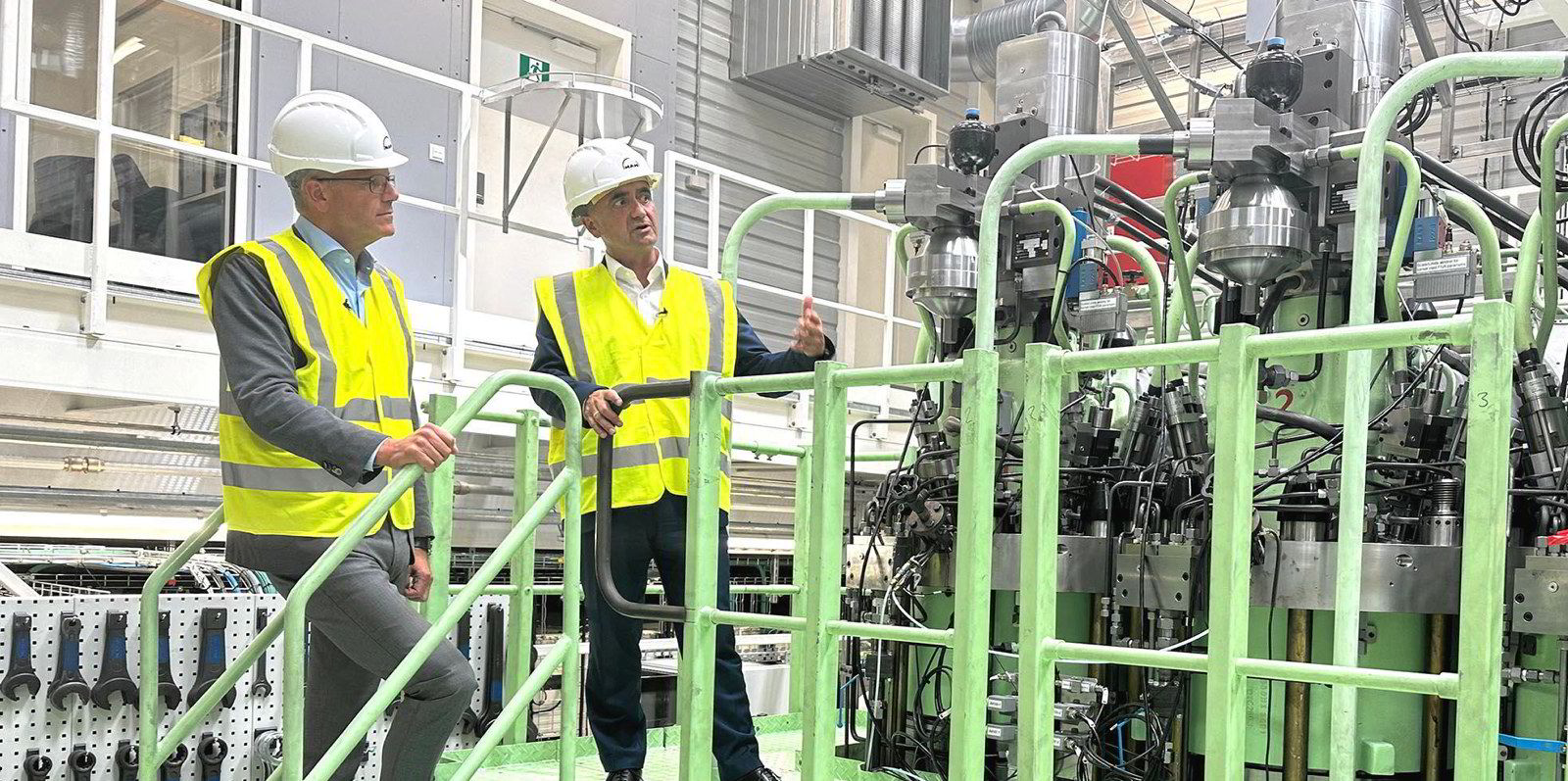MAN Energy Solutions believes standards for using ammonia as fuel on ships may be made available by the end of this year.
The engine maker is teaming up with major classification societies and port authorities to draw up the safety rules for the zero-carbon chemical to be used as fuel on vessels.
Speaking to TradeWinds, MAN ES chief executive Uwe Lauber said the use of ammonia as fuel is very challenging as the chemical compound is very toxic.
“It requires a lot of safety devices and there is no [safety] standard these days,” Lauber said.
Maritime & Port Authority of Singapore and DNV are some of the organisations that MAN ES is working with.
He said: “We as a team — the engine supplier, class societies and port authorities — have sat down together at the table to define some rules and guidelines.”
Lauber believes MAN ES’ experience in dealing in the oil and gas industry, which buys MAN ES’s turbo machinery and equipment for ammonia plants, and the ammonia engine test run that it carried out last year at its Copenhagen centre will help to devise the standard safety practises for using ammonia in the shipping sector.
Lauber stressed that the guidelines for using ammonia as a fuel on ships need to be set by the end of this year as the first ammonia-fuel vessel is due to be in operation in 2025 or 2026.
MAN ES recently opened a new mixed-purpose facility in Singapore — its largest outside Europe with over 250 employees.
The new facility is designed to carry out repair, maintenance and retrofitting of its range of dual-fuel engines.
The company plans to double the number of staff in Singapore and will train customers on dual-fuel engine operation.
Lauber estimated that 3,000 to 5,000 of the 20,000 ships globally that use MAN ES engines can be retrofitted to burn alternative fuels.
“Our customers would want to use their assets for the next five to 20 years and that means retrofits are important. We need the local people who can handle such work, who can deal with shipyards to carry out the modifications,” he said.
Lauber foresees that finding technicians who know how to operate dual-fuel engines will be a challenge.
“As an example, dealing with a ship running on heavy fuel is easy and you can find enough people to operate diesel engine vessels. But finding one that knows how to operate a dual-fuel engine running on methanol or ammonia is difficult,” he said.
“Skillset is getting more important, and I am really worried because these high-tech design engines require experienced personnel.”





